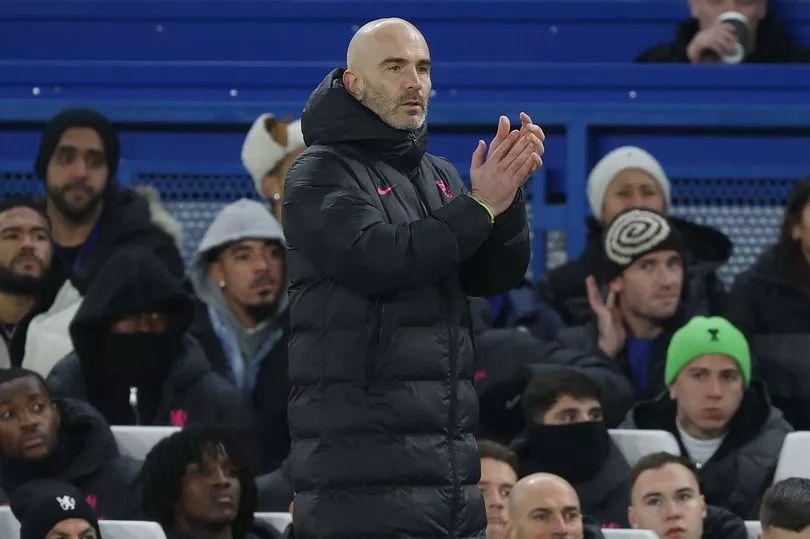Jobs
‘I’m thriving’: Phoenix nonprofit helping women land jobs in trades like welding

How can you stand out to Phoenix-area employers?
The job market waits for no one. Check out these five tips on how to make yourself much more memorable to Arizona companies.
Nicole Schaub, The Republic | azcentral.com
Kimberly Rush worked 23 years in the food industry. She waited tables in restaurants and prepped food in a supermarket deli. Then one day she decided she was tired of standing on her feet all day, working weekends and holidays, and living without paid vacations and other benefits.
Melissa Semper was in a similar boat, working as a Lyft driver. She also was raising two boys as a single mother and domestic abuse survivor.
Rush and Semper, both women of color, recently left those days behind. Instead of low-paid, dead-end work, they have managed to land steady, higher-paying jobs with regular hours, benefits and opportunities to move up in the technology and semiconductor industries, pursuing careers not traditionally done by women.
Rush, 48, of Phoenix, works at PacSci EMC, a company with a plant in Chandler that produces parts used in the aerospace and defense sector. After starting off as an assembler, she’s moved up to inspector, earning more than $22 an hour.
Semper, 42, of Tempe, is in a five-year apprentice program training to become a journeyman pipefitter and welder in the semiconductor industry through U.A. Local 469, a trade union. She started at $21.90 an hour. After a raise, she now earns $23.74 an hour, potentially earning $60 an hour when she becomes a journeyman.
Rush and Semper didn’t transition from service sector jobs to higher-paying careers in the growing semiconductor and technology industries on their own. They got a boost from Fresh Start Women’s Foundation. The nonprofit organization in Phoenix helps disadvantaged women become economically independent and self-sufficient.
Rush and Semper received counseling, training and on-the-job skills to make their career transitions because of a two-year, $542,000 grant Fresh Start received in 2022 from the U.S. Department of Labor. The money supports a program aimed at helping women access apprenticeships in trade and technology industry occupations that women do not traditionally do.
Fresh Start serves about 4,000 women a year, mostly Latinas and other women of color, said Kim McWaters, the nonprofit’s president and CEO. About 80% are moms, and 70% are single moms, McWaters said.
“That investment has made transformational opportunities available to our organization, the women we serve and our community,” McWaters said in August when Acting Secretary of Labor Julie Su visited Fresh Start and held a round table discussion.
Biden administration puts money into apprenticeship programs
Su is among several Biden administration officials who have visited Arizona, a key battleground state, recently to tout various programs and initiatives ahead of the Nov. 5 presidential election.
“Fresh Start is really demonstrating what we’re trying to build across the country when we talk about really building pathways to opportunity for everybody,” Su said during the meeting at Fresh Start.
The meeting was attended by local leaders involved in developing apprenticeship programs, including the East Valley Institute of Technology.
“You guys are really setting an example for what can happen in the rest of the country,” Su said. “The kinds of investments that are happening here, not just because of President Biden and Vice President Harris, but the private investments that are coming in due to those (government) investments.”
The Biden administration has made expanding apprenticeship programs where workers are paid to learn on the job a major priority, though at considerable cost to taxpayers. In July, the administration announced $244 million in grants to 10 states and nearly 50 nonprofit groups to develop apprenticeship programs. The apprenticeships aim to rebuild the middle class and provide better job opportunities to underrepresented populations in growing industries such as the semiconductor, advanced technology and clean energy fields.
Under the Biden administration’s initiative, the East Valley Institute of Technology was allocated a $6 million grant from the Department of Labor to work with employers to develop apprenticeship programs.
The Department of Labor also announced on Oct. 3 that Fresh Start will receive an additional $707,000 grant to continue helping women gain access to apprentices in nontraditional occupations for another two years, said Abdu Dahr, the organization’s vice president of strategic partnerships.
Fresh Start also recently received a separate $470,00 grant to develop a new program that will help prepare 180 women over three years for apprenticeships, specifically in Arizona’s clean energy and semiconductor fields. The state is becoming a worldwide center for advanced technology jobs, fueled partly by the development of the massive Taiwan Semiconductor Manufacturing Co. plant in north Phoenix and the influx of other advanced technology manufacturers.
Fresh Start is currently developing relationships with semiconductor manufacturers and clean energy companies to offer registered apprenticeships to women, Dahr said.
The new program will provide services to help women get on their feet so they can enter and complete apprenticeship programs successfully, McWaters said. The services will include health and mental health counseling, financial literacy, family stability, and education and career coaching, McWaters said.
The grant to help prepare disadvantaged women for apprenticeships in the clean energy and semiconductor industries came from the Department of Labor through UnidosUS, a national Latino civil rights and advocacy organization, said UnidosUS senior vice president of programs Mauricio Garcia.
UnidosUS received $4 million from the federal labor agency, and the money will be split among Fresh Start and nonprofits in two other cities, the Latin American Association in Atlanta and the Association House in Chicago, which are also UnidosUS affiliates, Garcia said.
“Overarching the goal in any of these places is to ensure that Latinos are tapping into careers and good jobs in emerging and critical sectors where there might have been Latinos, but there hasn’t been sort of that trajectory to find a good job, and a good career,” Garcia.
Latinos are expected to account for 78% of net new workers from 2020 to 2030, Garcia said, citing Department of Labor statistics.
“We have the bodies and the expertise and the skills to be able to to support these growing sectors,” Garcia said.
Pipefitter apprentice: ‘I’m loving every minute of this’
During Secretary Su’s visit to Phoenix in August, Rush and Semper and a third woman, Annaley Flores, described how participating in the Fresh Start program had improved their lives.
Flores, 23, said she is recently divorced. She became pregnant at 18, shortly after graduating from high school. Her son is now 5 and entered kindergarten this year.
In addition to providing counseling support through her divorce, Fresh Start helped connect her with a welding apprenticeship.
She admitted, however, that she initially entered the program “with not the right intentions.”
“I wanted to have a better relationship with my ex-husband because he is also a welder,” Flores said. “But that didn’t work out.”
But things turned out better for her in the end. She works for a company as a welder and fabricator earning good money.
“Now, I’m thriving,” Flores said. “I have a really good career.”
In an interview, Semper said she is originally from Trinidad and Tobago. She moved to Arizona from the Bronx, New York, with her two sons in May 2020 to start over after a divorce. She also had experienced mental health issues that stemmed from a National Guard deployment to Afghanistan in 2011 and 2012, she said.
Semper said she moved to Arizona with the intention of becoming a yoga teacher but ended up driving for Lyft to earn money. After a relationship with a man recently released from jail turned abusive, Semper said she sought help from Fresh Start.
Through Fresh Start, Semper completed a seven-month, tuition-free program to learn welding at RSI, a trade school in Phoenix that offers welding, HVAC, refrigeration and electrical programs.
Semper said after she had trouble getting a job, a Fresh Start counselor got her an interview at U.A. Local 469. She’s now in the first year of a five-year apprenticeship training to become a journeyman pipefitter/welder.
The pipefitting trade remains overwhelmingly male. Just 10% of the 1,300 apprentices currently in the Local 469 program are women, said Mike Malloy, the training director. But women are making gains, he said. Two years ago, about 6.5% of apprentices were women.
“There’s a misconception” that this is a trade for men, Malloy said.
“That’s really not the case,” he said. “We can appeal to all genders.”
Semper spends a week learning in a classroom about once a month. During the other three weeks, she is learning on the job at work sites.
“Right now, we’re learning the fundamentals of pipe trades,” Semper said. “So how to bend pipe, how to calculate what an offset is like, you know, when the pipe is not straight, and it has like a 45-degree or 90-degree angle. That’s what they are teaching us right now. A lot of math.”
Semper said her life is no longer stagnant. She learns something new every day, which she loves.
“I’m extremely happy,” Semper said. “I’m loving every minute of this.”
Rush, originally from Minnesota, is a member of the Red Lake Band of Chippewa. She’s lived in Arizona since 2001. She worked mostly in restaurants until she underwent chemotherapy for chronic myeloid leukemia and started working in the backroom of a supermarket deli to have less contact with the public during the COVID-19 pandemic.
Then, one day in February 2023, Rush decided she was “ready for something different.”
She went home, started browsing the internet and came upon a Fresh Start program called “Career Jumpstart,” which helps women begin careers in tech, trades, or other high-wage, high-growth industries.
That March, Rush attended a Fresh Start event featuring a panel of women who shared their experiences working in nontraditional occupations.
That led to a two-week boot camp at Mesa Community College, where she learned how to become a cable wiring harness assembler.
After completing her certification, Rush received more help from Fresh Start, learning how to properly fill out job applications, write a resume and practice job interviewing in front of a panel in person and over Zoom.
“I got a lot of great feedback. How to answer questions. How to be prepared,” Rush said.
Rush then attended a job fair at Fresh Start, which led to interviews and job offers from two companies, including PacSci EMC. She accepted the job from PacSci because it paid more and offered better benefits.
On Aug. 13, Rush completed a year at PacSci.
In addition to higher pay, she also receives medical and dental insurance, paid vacations and profit sharing. And unlike the restaurant industry, she no longer has to work weekends or holidays. In fact, she works four 10-hour days, Monday through Thursday. So she has Fridays, Saturdays and Sundays off.
Her life, Rush said, has changed “dramatically. I spend a lot more time with friends and family on weekends and holidays.”
And financially, “it’s helping me figure out my next steps towards retirement.”
Reach the reporter at daniel.gonzalez@arizonarepublic.com.









